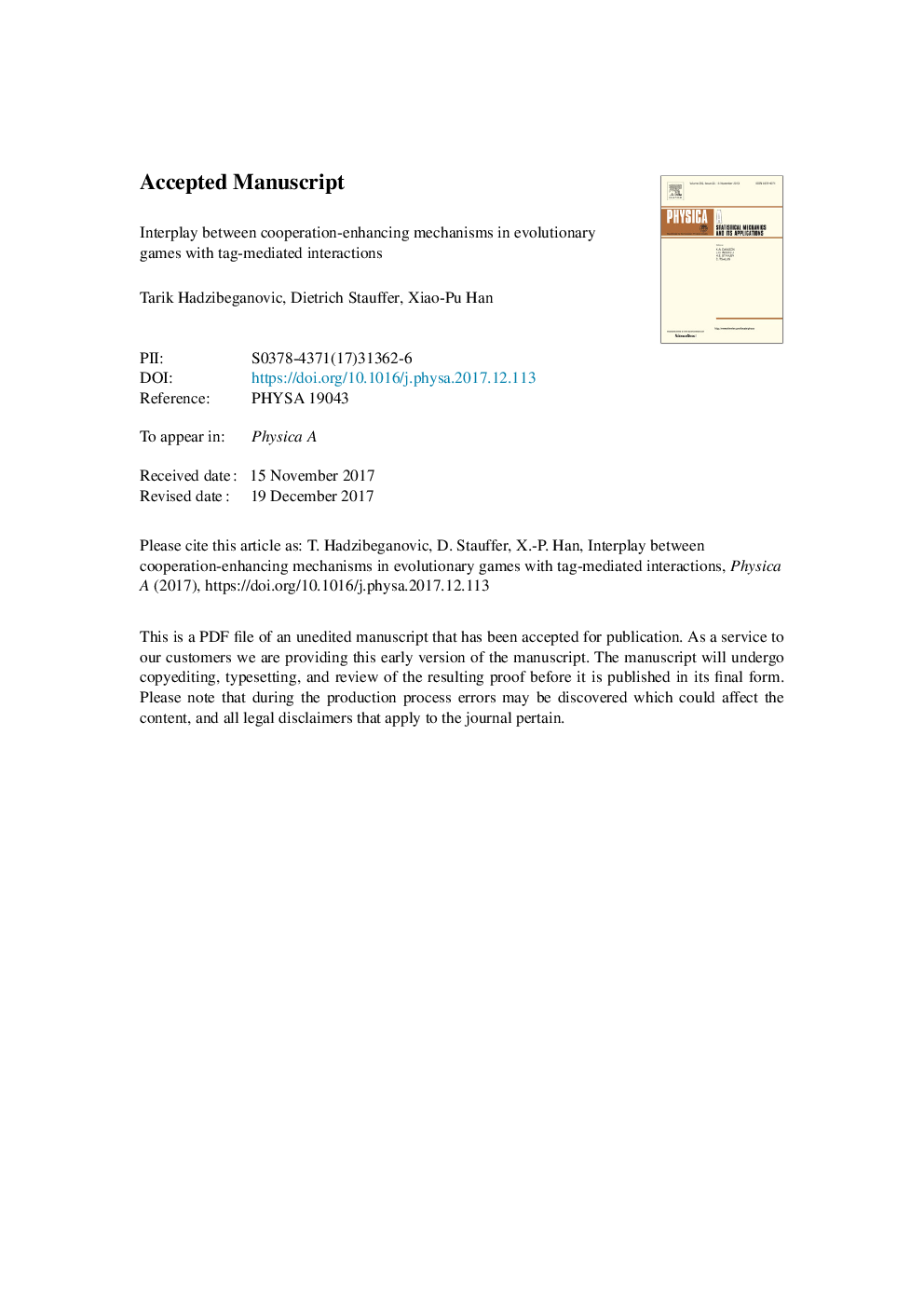| Article ID | Journal | Published Year | Pages | File Type |
|---|---|---|---|---|
| 7376063 | Physica A: Statistical Mechanics and its Applications | 2018 | 15 Pages |
Abstract
Cooperation is fundamental for the long-term survival of biological, social, and technological networks. Previously, mechanisms for the enhancement of cooperation, such as network reciprocity, have largely been studied in isolation and with often inconclusive findings. Here, we present an evolutionary, multiagent-based, and spatially explicit computer model to specifically address the interactive interplay between such mechanisms. We systematically investigate the effects of phenotypic diversity, network structure, and rewards on cooperative behavior emerging in a population of reproducing artificial decision makers playing tag-mediated evolutionary games. Cooperative interactions are rewarded such that both the benefits of recipients and costs of donators are affected by the reward size. The reward size is determined by the number of cooperative acts occurring within a given reward time frame. Our computational experiments reveal that small reward frames promote unconditional cooperation in populations with both low and high diversity, whereas large reward frames lead to cycles of conditional and unconditional strategies at high but not at low diversity. Moreover, an interaction between rewards and spatial structure shows that relative to small reward frames, there is a strong difference between the frequency of conditional cooperators populating rewired versus non-rewired networks when the reward frame is large. Notably, in a less diverse population, the total number of defections is comparable across different network topologies, whereas in more diverse environments defections become more frequent in a regularly structured than in a rewired, small-world network of contacts. Acknowledging the importance of such interaction effects in social dilemmas will have inevitable consequences for the future design of cooperation-enhancing protocols in large-scale, distributed, and decentralized systems such as peer-to-peer networks.
Keywords
Related Topics
Physical Sciences and Engineering
Mathematics
Mathematical Physics
Authors
Tarik Hadzibeganovic, Dietrich Stauffer, Xiao-Pu Han,
